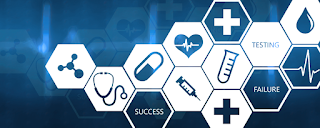Esoteric testing is the analysis of ‘rare’ molecules or substances. It is not performed in a routine clinical laboratory. These test are performed when there is requirement of additional information external routine lab testing, for proper diagnosis of disease, establish a prognosis or select and supervise a therapeutic treatment. Esoteric testing requires skilled personnel to perform the test and analyze the results due to usage of sophisticated chemicals and instruments. The tests are performed by specialized and independent clinical reference laboratories owing to high cost. It is not feasible for physician office laboratories and hospitals to perform these tests in-house. The test are regulated by regulatory stringent regulatory framework. These tests are not performed regularly.
Based on test type, the global Esoteric Testing Market has been segmented into genetics, endocrinology, immunology, molecular diagnostics, microbiology, oncology, serology, and toxicology. Molecular diagnostics is the fastest growing segment of the market, followed by the immunology and oncology segments, owing to increased prevalence of rare and genetic diseases and high demand for personalized medicine treatment. In terms of technology, the esoteric testing market has been segmented into chemiluminescence, ELISA, mass spectrometry, real time PCR, and flow cytometry.
Request to View Brochure of Report –
The chemiluminescence segment is expected to witness strong growth, followed by ELISA, because it is the most widely used technology in esoteric testing due to high efficiency and small sample required for testing. The real time PCR segment is expected to be driven by rise in prevalence of genetic disease and increase in demand for genetic testing. Growing use of information technology has allowed instant and efficient data transfer.
These developments will provide more efficient results and improved patient care creates huge demand for esoteric testing market. Complex diseases difficult to diagnose and treat through conventional methods are diagnosed using esoteric testing. Rising prevalence of such complex and rare medical diseases is expected to contribute to the growth of the esoteric testing market. Additionally, high investments in proteomics, increasing demand for personalized medicine, and genomics boost the growth of the esoteric testing market. However, stringent government regulations and dearth of qualified and trained professionals are likely to restrain the esoteric testing market.

Comments
Post a Comment